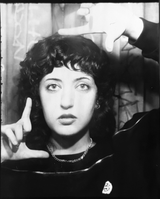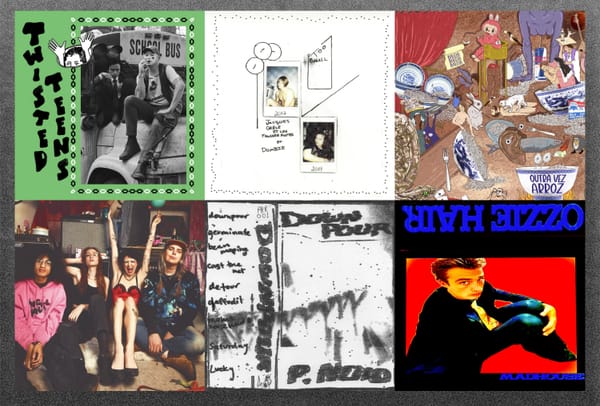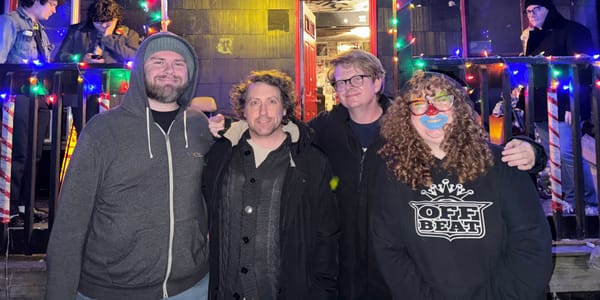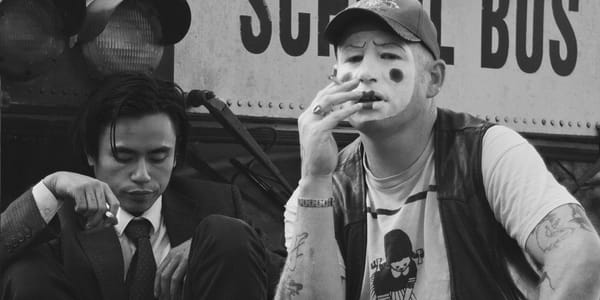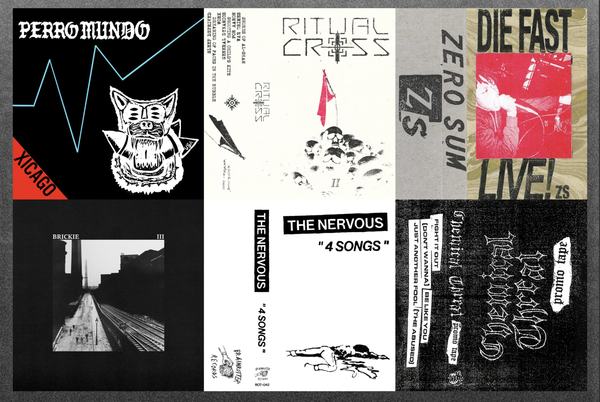kaleidoscope, an angry band that’s never been angrier
The NYC hardcore band on returning to punk as old heads and their new era where everyone’s a lead singer.
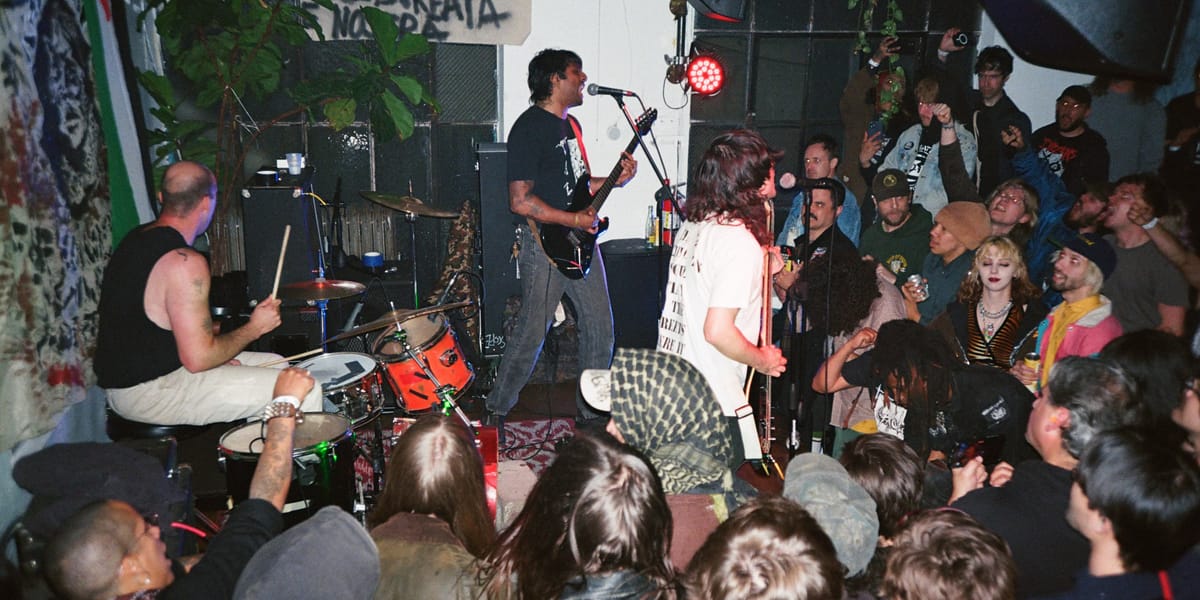
Kaleidoscope may not live together anymore, but their bond is just as strong. Shiva Addanki, Owen Deutsch, and Joe Nelson got their start practicing in a shared basement and have since grown into a movement. Between this band and their other projects, including Tower 7, Straw Man Army, and D4MT Labs, a special niche for political hardcore has been carved in a New York where many scenes are vying for airtime.
But when you’ve truly got something to say, and Kaleidoscope has a lot to say, people will stop and listen. Their new LP, Cities of Fear, came out on La Vida En Mus at the end of April. The release show was a month later at Trans Pecos, where I caught the trio before they played the album for the first time. Joined by friends Hysteric Polemix, Mirage, and No Knock, as well as a packed room of rowdy punks, the band divulged on the album’s process and their current creative philosophies.
It's been five years since your last proper release and six since your last LP; what’s it like getting Kaleidoscope back into the scene?
Shiva Addanki: I love being able to be an old head.
Owen Deutsch: I wanna say for the record that it's so funny to be the youngest person in the room for so many years, and then there was COVID. And then we come back, and now the old heads. And we're not that old. I just turned 30.
Joe Nelson: Shiva and I started going to shows before he was even a teenager, and, at the time, there was nobody even close.
Shiva Addanki: It was like a novelty. We stayed being the youngest people for a long time.
Joe Nelson: Even when we were like 25 years old people said “you’re a fucking baby.”
Shiva Addanki: And then lockdown happened, and then we came out of it, and we were old heads. It was sick because we hit the chrysalis moment.
Joe Nelson: There’s definitely a moment of like shock where you’re like, oh my god, I’m old.
Shiva Addanki: The first show I went to after my daughter was born, on the merch table there was a QR code and I was like, “What the fuck.” It had been months since I had been to a show.
Why was now the right time for Kaleidoscope to put out something new?
Shiva Addanki: I had a child in 2022. We were busy with other bands in the couple of years before that. So really, this was just as soon as we could get to it.
Owen Deutsch: We did a show with this band, Ferocious X from Japan, and we had time to give to Kaleidoscope, which oftentimes is given to different bands. So we were able to play and write one song, and we were all just thinking we could do this again really fast.
Shiva Addanki: We had been wanting to write for about a year, and I was about to move away, so I had this sense of urgency about wanting to put something down. That's when we made pretty quick work of it.
How long did the process take?
Shiva Addanki: It was like probably five days of writing and five days of recording and engineering. So it took five years to do it in 10 days.
Joe Nelson: But [Shiva] had plenty of ideas to bring to us, and we just flushed them out.
Shiva Addanki: As a group, our philosophy has been to never waste an idea that we’ve put our hand to. And so there were lots of loose scraps that we had been storing up, cause a lot of our music has been exclusively written in my head.
Owen Deutsch: It’s a listening band for sure. Classic Kaleidoscope is just, we talk way more than we practice.
Was the goal to write a full album?
Owen Deutsch: We didn’t know exactly what it would be. It just turned out to be a 12".
Shiva Addanki: But it’s also the economics of putting out 7-inches. They cost way too much now to be the lingua franca of punk anymore. 12-inches made more sense. And to do a short one would be a waste. So we made enough of a record to be a substantial 12".
Owen Deutsch: Tapes are still worth it, but 7-inches are $12 sometimes. It’s insane.
Shiva Addanki: It even felt ridiculous to be selling it for $8 back when we put out Decolonization.
Owen Deutsch: But this balanced out our ledger. We’ve done three 7-inches and we've now done three 12-inches.
Shiva Addanki: There has to be symmetry. It’s important.
On a more sonic level, what makes this album different than the last?
Owen Deutsch: We used to play our songs live to write them and figure out how we wanted to play them. And then this record, tonight, we’re playing all of it for our first time and everyone else’s first time. We also haven’t played in New York in almost a year.
Shiva Addanki: Notably, this is the first record that more songs than not are us doing gang vocals together. And it’s because in the time since we last recorded, these guys have both been lead vocalists and amazing performers. We were like, when we go back to doing this, we should definitely all be in the mix in a more significant way. It added a fun element where we can channel more of the influences that we have in classic hardcore punk.
How do you decide which political topics you want to cover?
Shiva Addanki: I write all of the lyrics, and I hadn’t written lyrics in a while. And I think a lot of the lag time was like, I don’t know if I have anything to say in the format of punk lyrics. But since the onset of total siege on Gaza in 2023 and the way that colonial war exposed larger circuits of oppression to the world activated a certain reflex back to communicating in punk lyrics: with clarity & urgency. We all pitched in to write Tower Seven lyrics, and that was fun and different. But in terms of me doing vocals and putting my voice to certain concerns, what we ended up writing about is just what immediately came to mind, and what felt true to us, and what I felt a sense of urgency about. I think we share values and sensibility enough that I’ve never been concerned.
Joe Nelson: There’s no discussion of, “Oh, what should we talk about?” Whatever you bring to the table, we're always a hundred percent.
Owen Deutsch: It’s also a continuation; certain things have always been present in Kaleidoscope lyrics. Like there’s a song that references rushes of dopamine, but it’s now come down to material conditions of the extraction of minerals. I think we’ve been accused of being a nerdy band, but I think we’re an angry band. We’re both.
That kind of goes into what my editor said when he was reviewing this album, which is you sound like people who were already politically aware and radicalized, but with each record, you just get angrier, and you just have more to say. Do you agree with that?
Shiva Addanki: Yeah, this is a band that started after a point of radicalization, and by protests that happened in response to Eric Garner and Michael Brown in late 2014. I think when we started out, there was a sense of being more influenced by the going definition of what post-punk was, and trying to do something that breaks the monotony that punk might be falling into. I used to be more oblique and poetic, but it’s just been weathered down more and more because I don’t really want any errors around this. We moved more with our gut, and our trajectory has been harder, heavier, and simple. We can do it and it won’t be too worship-y.
Owen Deutsch: Everything we try to do just sounds like us a little bit anyway.
Joe Nelson: I think having the confidence of knowing that we sound the way we sound, no matter what we write, helped influence writing this record. And that reflects in your lyrics, too.
Owen Deutsch: We started when you were in college, you’re looking at lyrics through a very academic lens, and now your lyrics reflect a lot of the visual art that you’ve been working on, and vice versa. Where you are in life, current events... we’re never at a loss for content. You watch the news and pick a fucking headline.
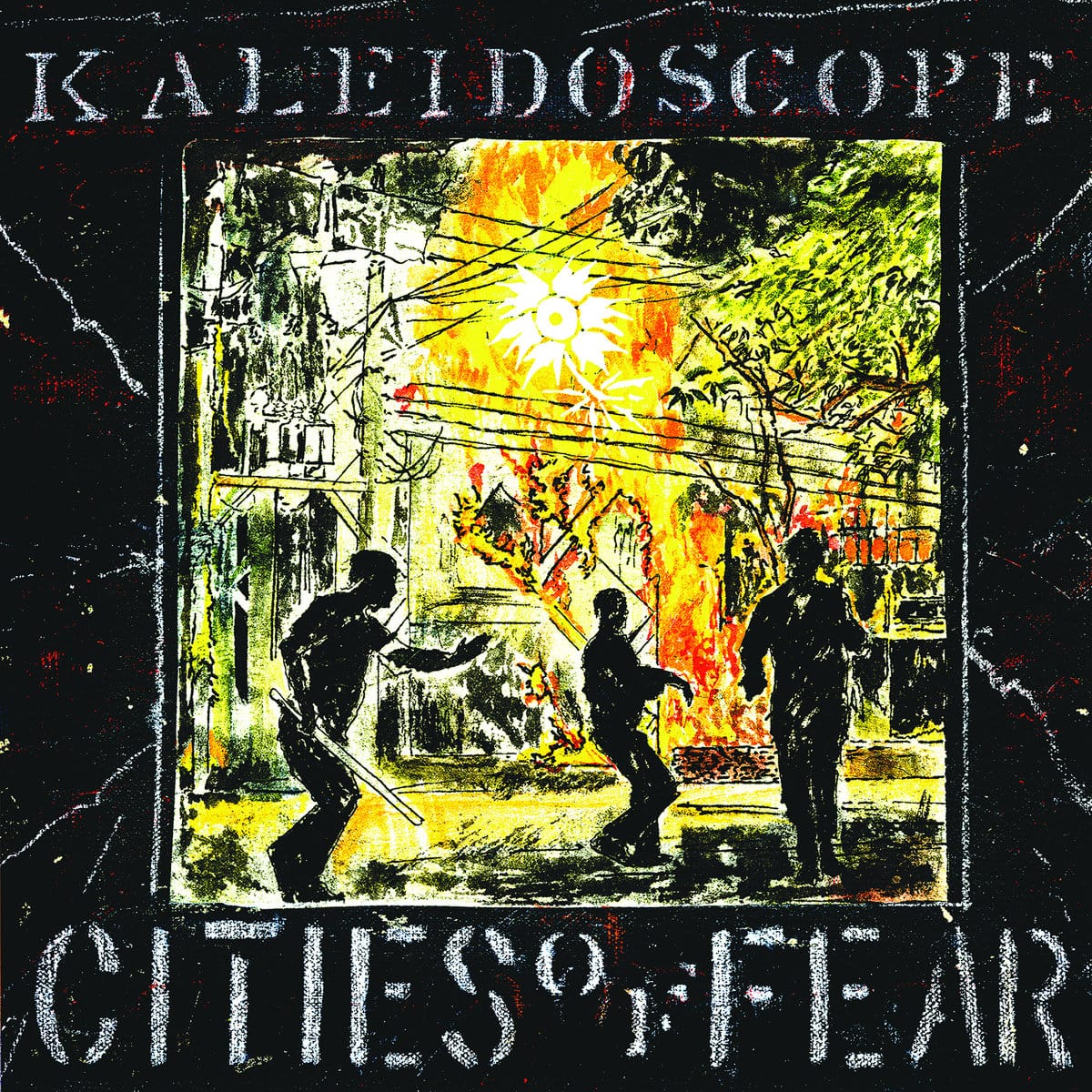
Speaking of your art, Shiva, I’m curious to know more about the album art because it’s one of yours. What medium did you use?
Shiva Addanki: It's drawing and painting. In the years since we last put out a record, I got into painting, that’s what I do semi-professionally, and I teach art. I got more focused on translating this pretty similar type of imagery into full color and using painting.
Owen Deutsch: I feel like the Easter egg about the art is that we had art years ago that had us three as zone explorers. It was a tape, and we did silhouettes. So the fact that there are three figures on the front is like this funny fact that we've been on the front as three shadowy figures before.
Shiva Addanki: There was a willful embrace of that when I was when I was like trying to come up with imagery. The images originally came from insurrectionary protests that happened in Bangladesh last year that deposed the Awami League government. I draw and paint a lot from capitalist news media, so I know what I’m looking for in those images. And in this one, I was like, there’s three people in there, and I’m gonna make 'em silhouettes, and that’s gonna be the throughline.
What’s that symbol in the middle of the fire?
Joe Nelson: It’s an unofficial logo that Shiva came up with, the flower.
Shiva Addanki: We all have it on us in some way. It developed a lot over the early years, like an eye inside a flower. But then it got abstracted to try to reference the Wretched logo. By the time After the Futures came around, the flower and the face were very Discharge and Wretched because that record had a lot more influence from those two bands. That kind of tracks with the thing we were talking about earlier, of how this sound has progressed. Aesthetically, too, we progress to be like how do we take all this range of input and compress it back into something that speaks to the tradition of political, self-produced, hardcore punk?
I really like the guest vocals that you brought on for “Utopia.” What was it like to add new collaborators to the mix?
Shiva Addanki: Having Tay [of Taz] on the record is cool because you have friends who’ve listened to our songs for so many years, and it just feels good to finally have the chance to be like, do you want to be involved? We’ve always actually tried to bring our close friends or interlocutors into the mix in some way. And this one, Taz, is like a sibling band to us in some ways, or has been over the years.
Joe Nelson: I particularly like how her vocals sound like Taz in that song. It’s recognizable, and we love that band. Tay and Cody have been our good friends for a very long time, so emotionally, that’s a really nice part of the record.
Do you wanna talk about the different bands that are playing tonight? Some other people in your universe.
Owen Deutsch: Hysteric Polemix is an excellent band that takes the parts that we like about anarcho punk and feeds it through an emotional lens that we don't necessarily have.
Joe Nelson: That’s a band that makes me cry when I see them.
Owen Deutsch: We are huge fans of Mirage. One of the best New York bands.
Joe Nelson: I feel a particular closeness with them because, for a long time, we always felt like the younger crowd. When they came in and were our age and also from the surrounding New York suburbs, we felt a kinship with them as the new crew.
Shiva Addanki: We actually haven’t shared a bill with them yet, cause we have played so few and far between in the past five years. And then the same goes with Mirage, who are a great younger band just in terms of like, years existing. Their affinity for Italian hardcore we share, so it’s cool to hear that influence really come out. And then last but not least is No Knock, who are an amazing, true, crude early New York hardcore band.
Owen Deutsch: I feel like all the bands present a different iteration of anger, which I like for this show.
I’m actually curious to know what your daughter thinks of the band?
Shiva Addanki: She thinks it’s funny. She was there when I was recording the vocals, and she'll do her imitation of “that’s when Baba goes blahhhhh.” She’s been around, and when we play outdoors, she’s seen us.
Joe Nelson: You used to put on hardcore punk for her, and she’d dance around.
Owen Deutsch: She’s aging out of punk at two, almost three years old.
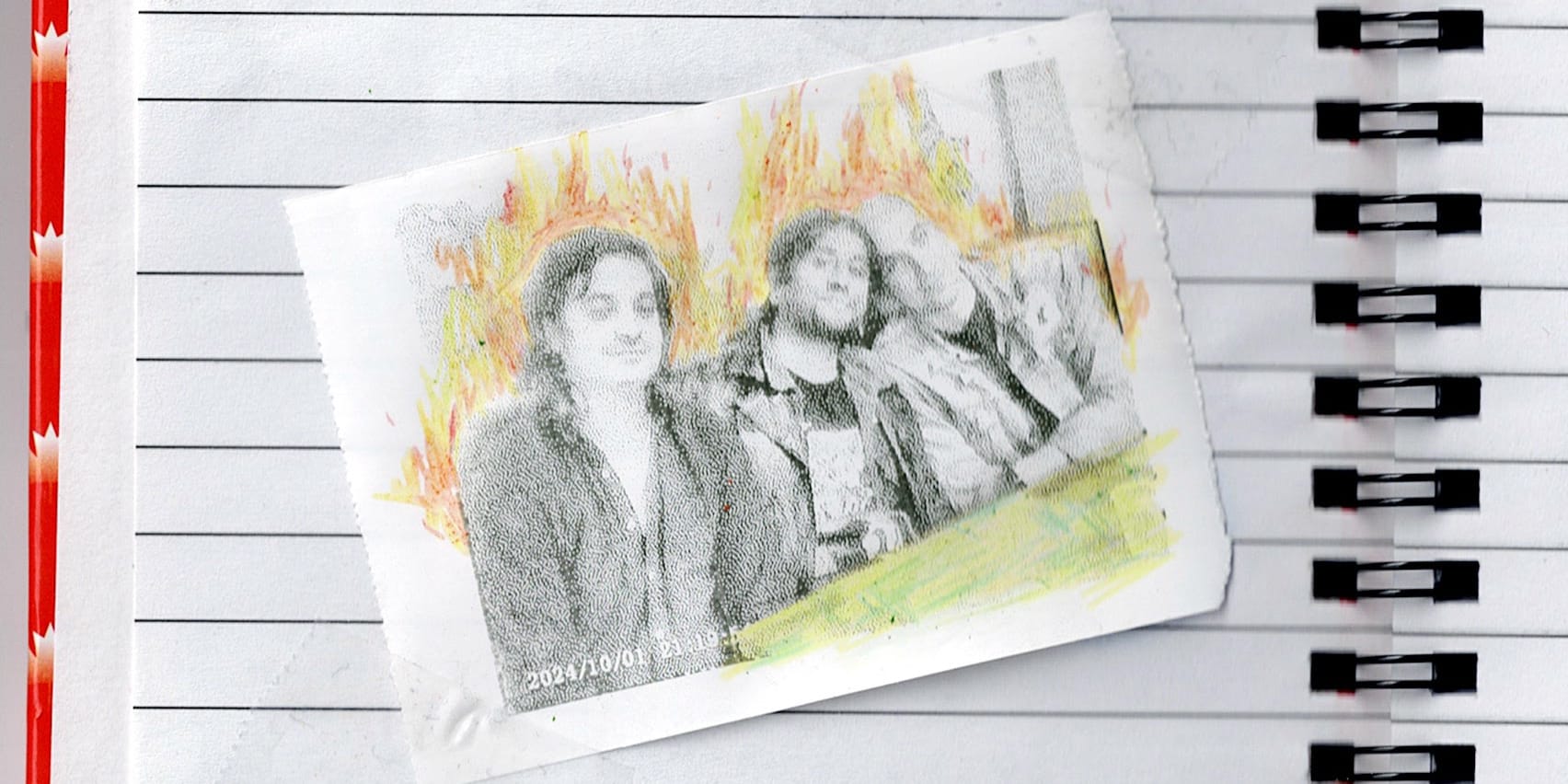
How do you feel going into a big show like tonight? Do you feed off the adrenaline?
Shiva Addanki: Oh, terrible. I fucking hate it.
Joe Nelson: I love it. I’m the only one in the band who likes playing live.
You are rare, then.
Joe Nelson: Yeah. I hate every other aspect of the band, but they love the writing and the practicing.
Owen Deutsch: At this point of being a band for 10 years, I hope that we do what we are supposed to do, which is play the songs well, cause we wrote them. There’s only one way to measure up what they’re supposed to be like, and we know what it’s supposed to be. So I hope that for ourselves we can meet it. But honestly, we’ve had shows where we practiced once and it’s fun. I hate playing live up until that one minute right before the show, and then I’m like, let’s do it. Especially when the drum set’s fucked up and there’s nothing on it. I love the feeling of this is chaos, I was born right now.
Joe Nelson: There’s no pressure to actually perform well. I feel like energy is more important than actually playing well. So I’m not that concerned. It’s catharsis, and I need it.
Owen Deutsch: My goal is not to play too fast. I always play too fast. We’ve been working hard on that. There’s something like when your blood quickens, like your heart quickens, your new normal for zero is now like 50 miles per hour. So what you think is slow is like Laurel and Hardy.
Joe Nelson: We always play, and we’re like, yeah, that felt pretty good. And then we watch the video, and we’re like, oh, it was very fast.
What’s next for you guys? Touring, other projects, another album?
Owen Deutsch: We don’t really have touring on the docket, just shows every once in a while. But we’re patient. We haven't played in a year.
Joe Nelson: We're trying to play in the UK. We’re trying to play in Richmond this summer. Yeah, that’s what we've been talking about.
Shiva Addanki: We’ve been threatening each other to make more music. When we talk about other music to make, I feel like mid-period Ex. The Ex is something that I’ve started to come back to more, and be like, oh, it feels pretty related to us.
Owen Deutsch: Just like rhythmic explorations. Political, rhythmic. But Japanese hardcore bands will be around for 30 years, and they'll put a record out every, like, five, 10 years or something. So we could just be like that.
If you enjoyed reading this, consider subscribing to see/saw.

